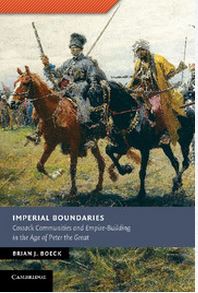This call for paper solicits chapter proposals to complete a collection of original research papers on the topic “Shades of Red in the 20th Century in Europe and Russia.” Socialism and communism are still too often reduced to stereotypical models like the Western welfare state or the Stalinist state, thus obscuring their plurality and diversity. This volume aims to uncover forgotten or overlooked experiences, movements, organizations, parties, factions, practices, events, activists, theorists, and theories, or develop new perspectives on better-known topics in order to show the whole spectrum of the shades of red that spread over Europe and Russia in the 20th century. See below for a detailed presentation of the topic.
The following topics are especially welcome:
New interpretations of/perspectives on the Russian Revolution
International perspectives on the Russian Revolution
Socialism and Communism in the “peripheries”
Socialism, Communism and race
Left factions/ultra-Left groups/groupuscules
Women
Youth
The Internationals/international networks
Thinkers/activists
Anarcho-communism
Socialist/communist civic or cultural organizations
Grassroots movements
Thinkers or activists
Councils
Communists or (Left) socialist parties in the West in the post-1945 era
Models/countries in the Eastern Bloc
Guidelines for chapter proposals
The planned chapters must present original research and not have been previously published in English or another language. Potential authors are academics holding a Ph.D. or graduated students.
Submissions must contain (please send all documents in Word format): A detailed preview of the planned chapter (5-6 pages), including references and footnotes. (The chapters will be around 8000-9000 words long.)
Please also include in a single file: (page 1) Identification: Name, job title, affiliation, institutional address, work phone number, home address, home phone number, e-mail address
(page 2) Short biography mentioning professional information relevant to the publication (as previous publications, teaching/research experience)
Please send all material by Monday, March 4, 2024 to the attention of Dr. Marie-Josée Lavallée
(Department of History, University of Montréal, Montréal, Québec, Canada) at marie josee.lavallee@umontreal.ca
Detailed presentation of the topic
Socialism and communism were radical democratic projects that aimed to provide a comprehensivesolution to the economic, political, and social issues brought about by the fast development of
industrial and finance capitalism in the 19th century against the background of the rise of mass society. These projects put forward a vision of the common good championing universal equality,
freedom, and social justice, whose flourishing would result from a revolution overthrowing capitalism and establishing collective property and people’s self-government and self-management.
Today, however, socialism and communism are discarded as failed ideologies and reduced to the paradigmatic forms they embodied in history. Socialism is lowered to the welfare state, which
resulted from the socialist compromise with capitalism and the ruling classes and which fed itself on neocolonialism and neoimperialism. Such a version of socialism dragged it far away from its
original commitment to overcome capitalism and empower the proletariat and failed to transform social relations: the Keynesian moment was short-lived and did not transform social relations.
Communism also turned its back on this ideal, but even worse, it morphed early on into one-party systems that created authoritarian, centralized, repressive, police, and even dictatorial states that allowed for new class privileges rather than abolishing them. While these failures are undeniable, bounding our appraisal of socialism and communism to them made us forget that they were radical democratic projects and encompassed a diversity of practices and theories. The fact that socialism and communism are widely used as defamatory etiquettes in the political and popular discourse obstructs our gaze further.
Interrogating the movements, organizations, parties, factions, practices, events, activists, theorists,and theories contesting mainstream socialism and communism, which often flourished out of a
refusal to endorse the latter’s perceived renunciation of the emancipatory projects they put forward, provides a privileged vantage point to rediscover the radical democratic nature and the
plurality of these ideological political complexes. Unnumerable men, women, and young people who struggled to build an egalitarian, free, and just society for all did not endorse all the practical
and theoretical twists and turns of mainstream socialism and communism in their historical deployment. Their oppositional stance marginalized them and sometimes exposed them to
repression and purges within their own ranks, often costing them their freedom and, sometimes, their lives. Also, many experiences and theories diverging from the dominant currents of
communism and socialism, and others that developed in the margins, namely, in the “peripheries” or among minority groups, have flourished throughout the 20th century.
Historians, philosophers, and political scientists are neither the sole nor the main ones responsible for the historical void surrounding these alternative practices and theories. The dominant actors were careful to nip in the bud the “deviationist” tendencies and to shut dissident voices, thus leaving few testimonies of these contestations. Similarly, the main actors and trends eclipsed minority and peripheral currents, which had fewer means to being seen and heard, being also less visible to scholars. The volume aims at making them visible and audible.
Contact Information
Dr. Marie-Josée Lavallée, Department of History, University of Montréal, Montréal, Québec, Canada
Contact Email
marie-josee.lavallee@umontreal.ca













